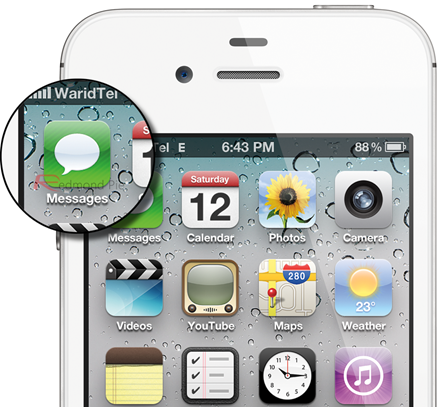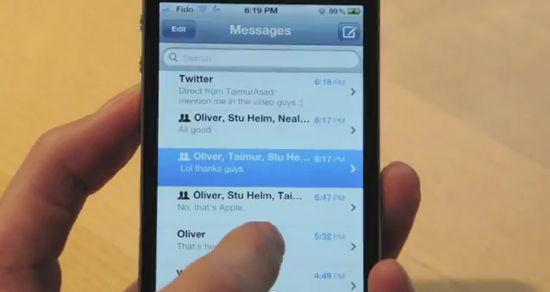Since iOS 5 parachuted onto the map back in October, the response from consumers has been generally positive.
Bugs have seemed few and far between, and minus the ado about battery drainage on the iPhone 4S, the fruit company’s latest and greatest firmware iteration has sat well with the many millions of iPhone, iPad and iPod touch users – more so now the jailbreak has been released.

iMessage was one of the key improvements in the firmware update, allowing iDevices users to communicate for free in an SMS-like infrastructure – much like BlackBerry Messenger and WhatsApp have been doing for a number of years. Providing there is a Wi-Fi or cellular connection available, messages can readily be sent back and forth, with color coordination used to differentiate between a normal message, and an iMessage.
Now though, critical error in iMessage’s make-up has now been glaringly uncovered, courtesy of Gizmodo. The bug apparently reveals iMessage to be in contact with an inserted SIM card, and even after the SIM is removed, iMessage conversations from said SIM can still be read.
The story goes; a young boy visited an Apple Store to get his iPhone looked in to, and one of the branch’s employees took the device out to the back, returning with an apparently repaired iPhone. However, at some stage whilst in the back room, the Apple staffer named "Wiz" had inserted his own SIM in, which for the benefit of testing, wouldn’t normally pose a problem – after all, remove the SIM, and it’s like it was never there, right?

Well, not exactly, no. This boy began to receive a number of Wiz’s iMessages over the following days, whilst the Apple employee was unwittingly sharing his private correspondence with a customer.
The story seems to confirm that iMessage checks any inserted SIM when initializing iMessage. Whilst most of us don’t readily swap SIM cards in the manner of which, say, an Apple employee does, it’s certainly discomforting to know that we could pass devices on to friends, family members, or via eBay, and our private messages could still be transferred to that device.
I think you’ll agree, Tim Cook’s security section needs to address this matter, and pronto. So far, the Cupertino-based company has dragged its heels in sorting out the lingering battery issues affecting the few, but when privacy’s at stake, the public just won’t settle for delays or empty promises. You can read the full article here at Gizmodo.
Leave your thoughts about the issue through the usual mediums jot down below.
You can follow us on Twitter, add us to your circle on Google+ or like our Facebook page to keep yourself updated on all the latest from Microsoft, Google, Apple and the web.

